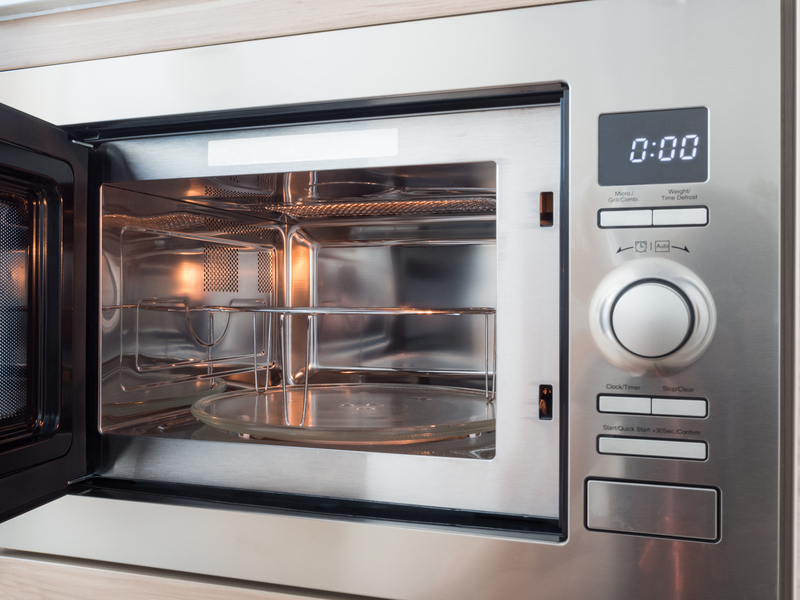Transform Cleaning from Chore to Habit with a Set Schedule
Posted on 30/05/2025
Transform Cleaning from Chore to Habit with a Set Schedule
Cleaning is a necessity for a healthy and harmonious living environment. Yet, for many, it's often approached as an overwhelming chore to be delayed as long as possible. The key to a cleaner home and a happier you lies in shifting this mindset: transform cleaning from a dreaded task into an automatic, easy-to-maintain habit. In this comprehensive guide, you'll discover how to establish a set schedule for cleaning, so cleanliness becomes second nature--not something you dread.
Why Turn Cleaning into a Habit Instead of a Chore?
Ask anyone striving for a clutter-free life: habitual cleaning routines are far more effective than sporadic marathon cleaning days. Turning cleaning into a habit reduces stress, prevents messes from piling up, and leads to a healthier living space. Let's delve deeper into why making cleaning a habit, with a set schedule, is transformational:
- Reduces feelings of overwhelm: Small, scheduled tasks are easier and quicker to manage than large, infrequent cleanings.
- Improves health: Regular cleaning prevents buildup of dust, allergens, and germs.
- Boosts mental well-being: A tidy environment contributes to lower anxiety and increased productivity.
- Develops discipline: Habits foster personal responsibility and a sense of accomplishment.
- Saves time and money: Preventative cleaning reduces the need for costly deep cleans or professional services.

Understanding the Psychology Behind Cleaning Habits
To transform cleaning from a chore to a habit with a set schedule, it helps to understand how habits are formed. Habits are behaviors repeated regularly until they become automatic. According to behavioral psychology, most habits consist of three key components:
- Trigger: A cue that initiates the behavior (e.g., morning coffee signals time for a 10-minute tidy-up).
- Routine: The behavior or cleaning task itself.
- Reward: The positive outcome that reinforces repeating the behavior (e.g., the satisfaction of a neat space).
Scheduling regular cleaning sessions creates consistent triggers, reinforcing your routine until it becomes second nature. Over time, the reward--such as an organized room or peace of mind--makes it worthwhile.
Creating an Effective Cleaning Schedule
A set cleaning schedule is your roadmap to transforming cleaning from a sporadic chore into a sustainable habit. Here's how to design a routine suited to your lifestyle and space.
Assess Your Needs
- Size and layout: Note the square footage, number of rooms, and especially high-traffic zones.
- Household members: Consider the number of people (and pets!) contributing to messes and capable of helping.
- Cleaning preferences: Decide if you prefer daily tidying, weekly deep cleans, or a combination.
Break Cleaning Down Into Manageable Tasks
Rather than trying to clean the entire house at once, divide cleaning tasks by room or type. For example:
- Kitchen: Wipe counters, clean sink, sweep floors.
- Bathroom: Scrub toilet and sink, clean mirrors, mop floors.
- Bedroom: Make the bed, tidy clothes, dust surfaces.
- Living areas: Fluff pillows, vacuum rugs, organize magazines.
Determine Cleaning Frequencies
Not all tasks require the same schedule. Here's a sample breakdown:
- Daily: Dishes, tidying common areas, sweeping high-traffic floors, wiping countertops.
- Weekly: Laundry, dusting, vacuuming, mopping, changing linens.
- Monthly: Clean inside appliances, wipe baseboards, wash windows, declutter closets.
- Seasonally: Deep-clean carpets, declutter garage, wash drapes, clean patio.
Use Tools to Stay on Track
Take advantage of technology and resources to help cleaning become a habit with a set schedule:
- Cleaning apps: Try apps like Tody, OurHome, or Home Routines to schedule and remind you of tasks.
- Printable checklists: Hang on the fridge or use a planner to track progress and maintain motivation.
- Shared calendars: For families or roommates, sync tasks so everyone knows their responsibilities.
- Timers: Set a 10-20 minute timer for a cleaning power session--short bursts keep you focused and efficient.
How to Make Your Cleaning Schedule Stick
A set cleaning schedule is only effective if it's followed consistently. Use these expert strategies to cement cleaning as a positive, lasting habit:
Start Small and Build Up
Don't try to overhaul your entire cleaning routine in one week. Begin with one or two new tasks per day, then expand as these become second nature. Success is more likely when changes feel manageable.
Pair Cleaning with Enjoyable Activities
Boost motivation by combining cleaning with other habits or enjoyable rituals:
- Listen to music, podcasts, or audiobooks while you clean to make the time fly.
- Reward yourself with a cup of tea or your favorite show after finishing your scheduled chores.
- Make it social: Turn cleaning into a family event or challenge roommates for a fun competition.
Create Visual Reminders and Triggers
Place sticky notes or digital reminders where you'll see them. Try tying cleaning tasks to existing habits (e.g., after breakfast, wipe the table and counters).
Track Progress and Celebrate Wins
Keep a cleaning log, check off completed tasks, and celebrate consistency. Success breeds motivation, reinforcing your cleaning routine as a positive habit.
Overcoming Obstacles to Habitual Cleaning
Everyone encounters setbacks. Here's how to prevent common pitfalls from derailing your set cleaning schedule habit:
- Lack of time: Focus on high-impact daily tasks and use short cleaning sprints. Even five minutes a day makes a difference.
- Perfectionism: Remember, done is better than perfect. Consistency matters more than spotless results.
- Procrastination: Schedule tasks for your most energetic time of day, and start with your favorite areas for a quick win.
- Shared spaces: Set clear expectations and turn cleaning into a team effort (rotating chores, shared calendars, or joint checklists).
Sample Cleaning Schedules: From Chore to Habit
Below are examples of cleaning schedules to help you get started and see how a set routine pays off.
Sample Daily Schedule (15-30 Minutes)
- Make bed and tidy bedroom (3 min)
- Unload and load dishwasher (5 min)
- Wipe down kitchen counters and stove (3 min)
- Sweep kitchen/entry floor (3 min)
- Tidy living room--fold throw blankets, arrange pillows (2 min)
- Quick bathroom wipe-down (toilet, sink) (5 min)
- Gather laundry if needed (2 min)
Sample Weekly Schedule
- Monday: Vacuum bedrooms and hallways
- Tuesday: Clean bathrooms thoroughly (tub, shower, mirrors)
- Wednesday: Dust all surfaces and electronics
- Thursday: Mop kitchen and bathroom floors
- Friday: Change bed linens and towels
- Saturday: Declutter entryway and wipe down doors/handles
- Sunday: Plan meals and clean out refrigerator
Monthly Zone Cleaning
- Week 1: Deep clean kitchen (appliances, pantry, under sink)
- Week 2: Organize closets and drawers in bedrooms
- Week 3: Deep clean living and dining rooms (furniture, light fixtures)
- Week 4: Declutter storage, garage, or basement
You can customize these examples to fit your unique schedule, home, and preferences.
Tips to Make Cleaning Feel Effortless (and Even Enjoyable!)
- Keep supplies handy: Store multipurpose cleaners, cloths, and other essentials in easy-to-reach places.
- Embrace the "clean as you go" mindset: Small efforts throughout the day minimize messes.
- Declutter regularly: Fewer items = easier and faster cleaning sessions.
- Ask for help: Enlist family, kids, or roommates--make it a team routine.
- Adjust with the seasons: Swap tasks as needs change (e.g., focus on outdoor cleaning in spring/summer).
- Revisit your schedule: Tweak your routine every few months to stay aligned with your lifestyle.
- Practice self-compassion: Some days will be easier than others. Any progress counts!

Benefits You'll Notice When Cleaning Becomes a Habit
The transformation from cleaning as a chore to a habit--anchored by a set schedule--delivers significant life improvements. Here's what you can look forward to:
- Consistently clean and welcoming home, with less stress
- Improved air quality and fewer allergens
- Better organization, making it easier to find necessities
- More free time (yes, really!) as clutter and dirt never get out of control
- Higher productivity and focus, thanks to a tidy environment
- A sense of pride and accomplishment each day
Key Takeaways: Transform Cleaning from Chore to Habit with a Set Schedule
- Establishing a regular cleaning routine is far less stressful and more manageable than sporadic deep cleans.
- Use a set schedule (daily, weekly, monthly) to automate cleaning tasks into your life.
- Leverage technology, reminders, and accountability to make habits stick.
- Start small, pair cleaning with rewards, and adjust your approach as you go.
When you transform cleaning from a daunting chore into an automatic habit--guided by a smart, personalized schedule--you'll enjoy a fresher, happier, and more inviting home every day. The secret is consistency, not perfection. Start your journey today, and watch your living space (and your outlook) truly shine!
Latest Posts
Discover the Key to Permanent Curtain Freshness
The Best Ways to Polish Your uPVC Window Frames
Reclaim your living space using our essential Spring Deep Clean itinerary





